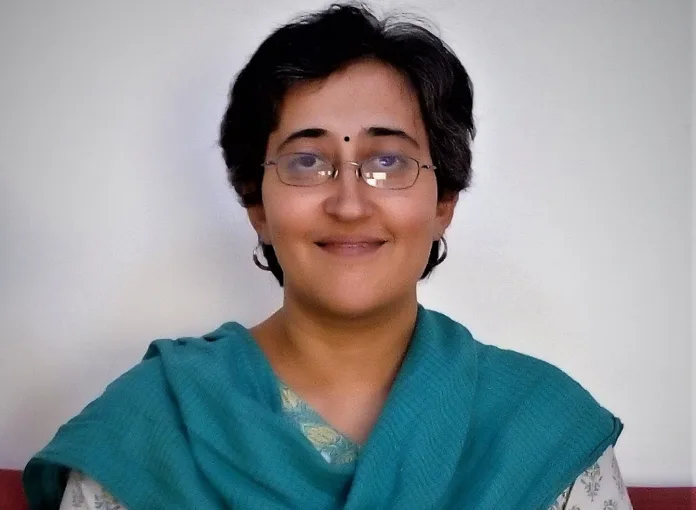Taking the helm after Arvind Kejriwal’s resignation, Atishi aims to continue AAP’s legacy while addressing pressing urban issues
Atishi, a prominent figure in the Aam Aadmi Party (AAP), officially takes charge as Delhi’s Chief Minister today. Sworn in on Saturday, she becomes the eighth Chief Minister and only the third woman to lead the national capital, joining the ranks of Sheila Dikshit and Sushma Swaraj. At just 38, Atishi sets a record as the youngest individual to assume this role, marking a significant milestone in Delhi’s political landscape.
Her appointment follows the resignation of Arvind Kejriwal, prompted by an interim bail order from the Supreme Court regarding the excise policy case. The change in leadership comes at a critical time as AAP seeks to reinforce its governance model while facing ongoing scrutiny.
During her oath-taking ceremony, Atishi emphasized her commitment to building on the achievements of her predecessor. She retains 13 key portfolios, ensuring continuity in vital sectors such as education and public services. Alongside her, five cabinet ministers, including four from Kejriwal’s previous government and one new appointee, were sworn in, signalling a blend of experience and fresh perspectives.
Embed from Getty ImagesAtishi’s extensive background in education reform positions her well to address pressing issues in Delhi. Her government plans to tackle challenges such as healthcare, housing, and infrastructure development. With the city’s population growing rapidly, Atishi understands the need for sustainable urban solutions.
The new Chief Minister faces immediate challenges, including rising air pollution, healthcare accessibility, and housing shortages. Her previous work in AAP’s education reforms has garnered recognition, and she is expected to apply the same innovative approach to other pressing urban issues.
As Atishi steps into her new role, her leadership will be closely watched by constituents and political analysts alike. The public’s expectations are high, particularly regarding her ability to navigate the complexities of governance in a diverse and rapidly changing city.
Analysis
Political Perspective
Atishi’s ascension to the Chief Minister’s office marks a pivotal moment for AAP as it seeks to maintain its influence in Delhi. Following Kejriwal’s resignation, her leadership is crucial in reinforcing the party’s commitment to its progressive agenda. The government aims to address both immediate urban challenges and long-term policy goals, ensuring that the party remains relevant in the political landscape.
Social Perspective
Atishi’s appointment highlights the importance of representation in governance. As the youngest woman to lead Delhi, her position serves as a beacon of possibility for young women and girls in politics. This historic moment encourages discussions about gender equity in leadership roles, pushing the narrative that women can excel in high-stakes political environments.
Racial Perspective
Atishi’s leadership also reflects the multicultural fabric of Delhi. Her policies will likely address issues that affect various communities, aiming for inclusivity in governance. By focusing on equitable access to resources and services, she can foster a sense of belonging among all residents, regardless of their background.
Gender Perspective
Atishi’s rise to power underscores the ongoing struggle for gender equality in Indian politics. Her leadership style and policy decisions will be closely examined for their impact on women’s rights and representation. As a prominent advocate for education, Atishi is well-positioned to implement initiatives that support women’s empowerment and address gender-based disparities.
Economic Perspective
Economically, Atishi faces significant challenges as Delhi grapples with high living costs and a housing crisis. Her experience in education and public service will be vital in shaping policies that drive economic growth while ensuring social welfare. By focusing on sustainable urban development and infrastructure improvement, Atishi can help stimulate job creation and enhance the city’s overall economic health.
Atishi’s leadership will set the tone for AAP’s future as it navigates a complex political landscape. Her ability to address the pressing issues facing Delhi will determine not only her success as Chief Minister but also the long-term viability of AAP’s governance model. The public’s response to her policies and initiatives will be critical as she seeks to fulfil the high expectations that come with her historic appointment.
